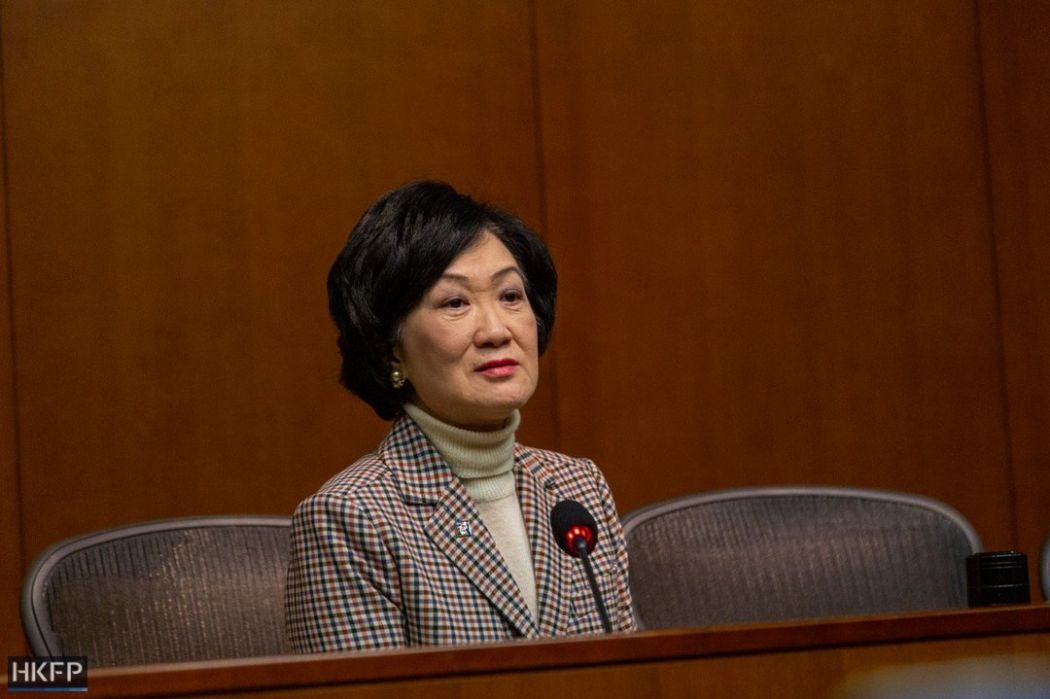Pro-Beijing lawmaker Regina Ip on Monday criticised the UK’s newly-implemented extended immigration visa scheme which allows holders of the British National (Overseas) (BNO) and their dependants to move to its shores.
“It’s completely unreasonable,” Ip said on a RTHK programme.

The chair of the New People’s Party accused the UK of setting a double standard: “The UK has lots of laws regarding their national security. Why can they do this while others can’t?” she asked.
London announced the extension of BNO-holder immigration rights shortly after Beijing’s passing of the Hong Kong national security law last summer, citing a violation of the Sino-British Joint Declaration.
“Where in the Sino-British Joint declaration does it say that China can’t make laws protecting it’s national security?” Ip added.
She further accused the UK of being the first to break the Handover agreement with China, defending Beijing’s move to stop recognising BNO passports as valid documentation as an appropriate countermeasure.
The new scheme, which began on Sunday, will allow BNO holders and their dependants to work and study in the UK, with a pathway to full citizenship after six years.
‘No money, skills, or education’
Around 7,000 Hongkongers have moved to the UK since the security law’s implementation last June under special “Leave Outside the Rules” (LOTR) measures before the scheme formally began, according to the UK government.
Ip described Hongkongers who had left for the UK under LOTR measures as people with “no money, skills or education.” She claimed that those who have already left may either be protesters looking to evade the law or are people who are “dissatisfied” with the security law.

The UK predicts the new scheme will bring as many as 322,000 Hongkongers to its shores in the next five years, bringing up to £2.9 billion (HK$30 billion) of “net benefit” to its economy.
Last month, Ip called on the Hong Kong government to adopt mainland China’s nationality laws, where citizens are banned from holding dual-nationality.
Those born in Hong Kong before 1997 are entitled to a BNO passport, a travel document issued during colonial-era Hong Kong. Around 70 per cent of the city’s population are now eligible to move to the UK through the extended scheme.
In June 2020, Beijing inserted national security legislation directly into Hong Kong’s mini-constitution – bypassing the local legislature – following a year of pro-democracy protests and unrest. It criminalised subversion, secession, collusion with foreign forces and terrorist acts, which were broadly defined to include disruption to transport and other infrastructure. The move gave police sweeping new powers, alarming democrats, civil society groups and trade partners, as such laws have been used broadly to silence and punish dissidents in China. However, the authorities say it has restored stability and peace to the city.
Support HKFP | Policies & Ethics | Error/typo? | Contact Us | Newsletter | Transparency & Annual Report | Apps
Help safeguard press freedom & keep HKFP free for all readers by supporting our team
























